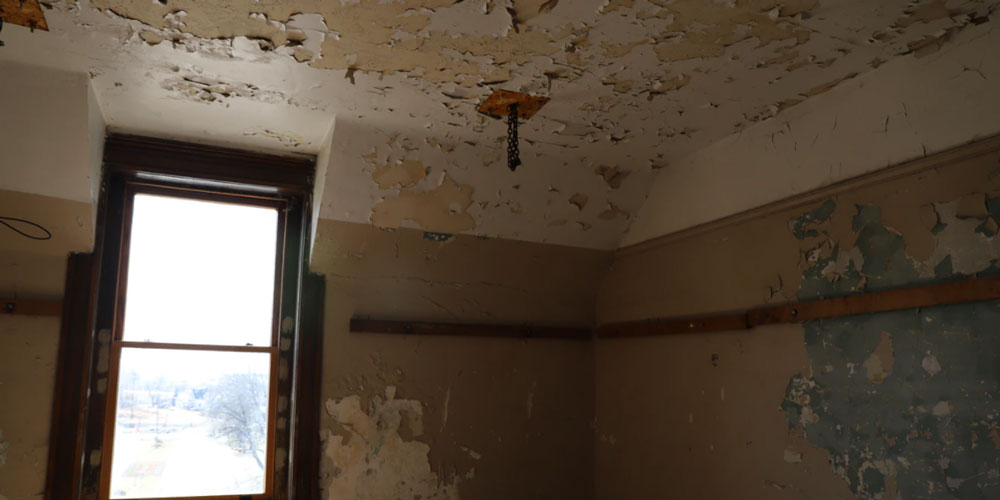The headlines of doom are coming!
Above a Brian Amaral report in the Boston Globe readers will find this:”R.I. health care system ‘is currently collapsing,’ emergency doctors warn“:
The crisis has led to long wait times and inconsistent standards of care: “rationing resources, unable to provide privacy, and certainly unable to provide any COVID-19 isolation precautions,” [Dr. Nadine Himelfarb, the president of the Rhode Island chapter of the American College of Emergency Physicians,] wrote. It doesn’t happen all the time, but hospitals now are unable to consistently provide the level of care people are accustomed to in 21st century America.
“Imagine patients dying while waiting to be seen by a doctor who is 50 feet away and, because of lack of staff and thus capacity, simply unable to treat them,” Himelfarb wrote. “This is a true tragedy that is currently unfolding for citizens of Rhode Island.”
Take the lesson, Rhode Island. This is life under socialism.
Progressives will scoff that our system cannot be characterized as socialism, but all their work and emotional manipulation has ensured that it contains more than a healthy serving of that deadly ideology. We’re getting a taste, and we should learn from it… quickly.
Such lessons won’t be easy, of course, not the least because the people reporting on the circumstances are invested in redirecting attention away from the big-government causes of our woes. Himelfarb comes close to the matter in paragraph 10 of Amaral’s article:
The state could also provide subsidies for health care worker salaries to get them to come to Rhode Island; loosen licensing and credentialing criteria and let professionals work here if they’re licensed in another state; and provide protection from legal liability when they’re working in these sorts of “disaster conditions.”
The State of Rhode Island, which is sitting on some billion dollars of COVID relief money, could allocate funds to draw nurses to the occupation in Rhode Island, easing regulations for that purpose. The state could develop systems to triage Rhode Islanders away from emergency rooms for non-emergencies. But there isn’t even talk of such things.
This is socialism. Solving the problem doesn’t serve any of the goals of people in power, so they won’t solve it. With a system in which people can direct resources where they can address their concerns, that’s where attention and money would automatically go. With a system in which a small group makes decisions, it matters less what the population is actually concerned about than what the rulers are concerned about, and from their perspective, a general sense of crisis is helpful. It means more resources and power will be given to them as the people who are supposed to solve problems!
Not only do money and power increase for them, but the blame for failure is easy to evade. Consider Mark Patinkin’s profile of a Rhode Island Hospital doctor charged with determining which patients can enter his intensive care unit (ICU). The essay does not once mention the state government or the mountain of cash currently at its fingertips for the benefit of Rhode Islanders. Patinkin doesn’t talk about $3,000 bonuses to state workers whether or not they are vaccinated. He doesn’t mention the political wrangling to distribute the federal windfall to special interests. If you want to know who’s to blame in his presentation, look here:
The MICU, which Ward calls the Swiss Army Knife of ICUs, is responsible for Rhode Island Hospital’s sickest COVID patients. He’ll tell you virtually all right now are unvaccinated. And because of who is avoiding the shots, most are younger than a year ago.
This is how the process works in a socialist system. From the perspective of the insiders, if everybody would just get vaccinated, then the government wouldn’t have to spend resources to manage their expression of autonomy and civil rights, and those resources could instead spread grease throughout the corrupt system in which they slither. The money is their money for the benefit of their community, not your money to manage your community.
When government is appointed to solve a problem, its most efficient route isn’t to take the population as it is and manage the complexities, but to assert that the problem is you and plan for elimination.
Featured image by the National Cancer Institute on Unsplash.
[Open full post]The musical innovations must have been compelling at the time, but the arrangements are so narrative, I feel like I’m listening to a Bugs Bunny soundtrack or something.
[Open full post]The United Kingdom gives a good example of the problem with this constant reporting of COVID numbers as if they should be scary, especially when the metric is people with COVID, not people who have been assessed to have been harmed by it.
Here’s the underlying data, which shows that the United Kingdom has had 24,968 confirmed Omicron cases and another 76,705 suspected, but unconfirmed, cases. All hospitalizations and deaths have been in England, with the following numbers for that country, specifically: 23,168 confirmed cases, 62,597 suspected cases, 85 hospitalizations, and 7 deaths.
This is without context, though. The population of England in 2016 was 55.27 million. That year, there were 490,791 deaths from all causes. That’s one death for about every 113 people. The Omicron report for the 18th doesn’t make this clear, but the one the day before indicates that the clock for Omicron hospitalization data started on November 24, which means these deaths have occurred over three weeks.
In 2016, England had roughly 28,315 deaths every three weeks, which means one out of every 1,952 people died in any given three-week period. Thus, we would expect that 44 English people with confirmed or suspected cases of Omicron COVID would have died from any cause. If we look only at confirmed cases, that number would be 12.
My unanswered question has to do with the testing protocol. If everybody who dies of any cause is tested for COVID, then the seven dead people who tested positive for Omicron is lower than would be expected, as if having Omicron is associated with better health outcomes. (That sounds crazy, but it could be the case if people felt sick and so stayed in bed nursing themselves, which is not a very risky activity.)
The more targeted the testing along the lines of a diagnosis (such as presentation of COVID symptoms), the more likely the deaths are attributable to Omicron, and the more likely its death rate exceeds the average for all causes. But with England testing about one-sixth of its population every three weeks, the targeting can’t be but so narrow.
My objective, here, is not to guess the actual death rate in England from Omicron, as opposed to with it, but only to illustrate how little it tells us to hear that seven people have died while testing positive. After all, over the same period, about 1,952 Englishmen and -women have died after breathing air. Even the mainstream media isn’t trying to attract clicks by reporting that statistic.
Featured image by Adhy Savala on Unsplash.
[Open full post]What can one say? John’s questions are exactly on point, but nobody is surprised about what’s going on:
Why is an unelected official making all the Covid decisions? Governor Dan McKee seems content to allow Dr. Nicole Alexander Scott to make all Covid decisions including decisions that are different than Massachusetts. Why is testing so slow? Why does the state now have different mandates than Massachusetts and Connecticut? Governor McKee seems to want to distance himself from decisions made by the RIDOH, but they are supposed to report to him. Why isn’t LT. Governor Matos in-charge of the Covid task force, which has the power to create problems for businesses?
[Open full post]
This is exactly the sort of environment the education system in Rhode Island and other places around the country are inviting as they seek to impose ideological radicalism as guiding lights and institutionalize a system of lying to parents. At the link, Rod Dreher supplies video of the emotional testimony and accusations of Jessica Konen, whose daughter’s school effectively interposed itself into the family and groomed her daughter for sexual abuse before calling child protective services on Konen for being insufficiently woke and making her fear the loss of all of her children.
Parents should picture themselves in Konen’s situation, here:
The teacher told Konen her daughter was “trans fluid.”
“I sat across the table, and I was crying. I was trying to absorb everything.”
“They kept looking at me angrily because I kept saying ‘she,’ and that it was going to take me time to time to process everything,” she said. “I was very confused. … I was very upset. I was blindsided—completely blindsided.”
The teacher accused Konen of not being “emotionally supportive” of her daughter, who was to be called by a new name and male pronouns and would be using the unisex restroom at school. …
“It made me feel very, very small as a parent. I was unaware of anything. Not one time had she mentioned to me ‘Oh, I think that I want to change my name,’ or ‘I’m transgender’ or anything. Nothing. I only heard bisexual one time, and that was it,” Konen said.
Konen describes the experience further in the video. The teachers positioned themselves on the same side of table with her daughter, across from mom, and comforted her daughter with hugs during the meeting. This divorce-hearing-like setting is precisely the progressive attitude that your children belong to the government, which is their true and caring parent.
The sexual identity angle of public education’s new assumption of authority is the most personal, but it’s not the only one. Jeff Reynolds has posted video on Legal Insurrection of an altercation in Glastonbury, Connecticut, when a school board member left the stage to confront a parent over commentary about a politically correct change of the school’s mascot. The member pushed the man away as he got in his face and was, in return, knocked to the ground with a punch.
Biden’s legal arm and other government agents may seek to put the blame for these altercations on parents and others in the community, but progressives in government are the original aggressors, here. The temperature could easily be lowered if they would just stop trying to push radical politics on children, but they see total control and domination tantalizingly within reach.
Before throwing punches, though, Americans should follow Rod Dreher’s suggestion in the title of the article at the first link above, “sue them, parents. Sue them into the ground.”
[Open full post]During her time as governor, Rhode Islanders periodically would hear rumors that Gina Raimondo had the backing of powerful financial interests. Indeed, she typically received the large majority of her campaign donations from people with out-of-state addresses. As I asked in 2017, what were they buying with their money?
At the time, the answer seemed likely to be access to Rhode Island government money, with a longer-term investment in an up-and-coming Democrat. Given recent headlines involving Andy Moffit, the husband of the now–Commerce Secretary for Joe Biden, the question begins to have an East Asian feel:
A venture capital firm backed by the Chinese government is a major investor in an artificial intelligence company that counts Commerce Secretary Gina Raimondo’s husband as a top executive, a potential conflict of interest as her agency works to counter China on the world stage.
Danhua Capital, based in California but established with the financial backing of the Chinese Communist Party, is one of the main funders of PathAI, an artificial intelligence firm that employs Raimondo’s husband, Andy Moffit, as its chief people officer.
That isn’t all, however. Before PathAI, Moffit worked for McKinsey & Company, which Jack Butler describes as a career attraction for “the morally uncertain products of our higher-education system who emerge from said system sure primarily of one thing: that they should be telling people what to do” — like “knock it off.”
McKinsey, too, has some disturbing Chinese connections:
… outside of the U.S., McKinsey has helped to facilitate the economic rise of China, in a manner beyond even the mere investment and engagement of other American companies with Chinese business. According to the New York Times, “In China, it has advised at least 22 of the 100 biggest state-owned companies — the ones carrying out some of the government’s most strategic and divisive initiatives.” One of McKinsey’s Chinese clients helped construct that nation’s artificial islands in the South China Sea, an obvious military venture. And perhaps most shocking, a few years ago some McKinsey employees attended a corporate retreat in Xinjiang Province, riding camels and relaxing in high-class resorts just a few miles away from Uyghur concentration camps.
Butler’s source doesn’t say whether Moffit was among those recharging their batteries in proximity to Chinese slave prisons, but it doesn’t much matter. How deep the Commerce Secretary’s connections to the communists go, however, does matter. If the answer is that they go no deeper than is typical for people of her social class and political party, that matters even more.
Featured image by Justin Katz.
[Open full post]This is worth remembering, especially because so many people charged with keeping an eye on things want to forget it:
[Open full post]We found out about the 14,000 abandoned Americans almost two months ago, of whom the State Department only shows 900 exfiltrated thus far. We also knew that the US had abandoned tens of thousands of Afghan allies in Joe Biden’s haste to retreat from Afghanistan in August, but we didn’t have an exact count. The Wall Street Journal reported last night that State now estimates that number to be 62,000 …
This figure does not include family members of those interpreters and other workers who supported US efforts in Afghanistan. The true number of people at risk of reprisals from the now-ruling Taliban (or others) may well go into six figures. And that also doesn’t include the 13,000 Americans — citizens and legal permanent residents — that remain stuck behind Taliban lines months after Biden’s bug-out.
Republican Representatives Marjorie Taylor Greene and Louie Gohmert visited the men being held in prison for involvement in January 6 and released a report of their findings.
That this isn’t a subject of interest much more broadly is mind blowing. In fact, much of the commentary I see treats it as somehow inappropriate of Greene and Gohmert to show any concern at all.
Here’s a simple test: if you’ve locked these folks away in an area of your mind that you don’t want to know about, they are every bit political prisoners, with all the fascistic connotations of that term, to you.
[Open full post]Memory is hazy, and I missed early punk by about a half-generation, and I couldn’t quickly find the clip, but I remember seeing a punk rocker being interviewed on a mainstream television show, looking very much the emaciated junky and saying, essentially, we have control over your children. Even not being a parent at the time, something was chilling about the assertion.
Part of what made the punk movement different was that it discarded the aspirational part of revolution. They weren’t trying to push people past standards and norms to free them for a higher existence. To some extent, the very notion of a higher existence was just another version of oppression. The corruption and destruction was the point.
I thought of that image upon reading Charlie Jacobs’s account of “rescuing [her] daughter from her transgender fantasy”:
During that same time period, my daughter went through Teen Talk—a Manitoba, Canada-based program that says it provides “youth with accurate, [nonjudgmental] information” on “sexuality, reproductive health, body image, substance use awareness, mental health, issues of diversity, and anti-violence issues”—at her public school.
She came home with a whole new language. She and all her girlfriends discussed their labels—polyamorous, lesbian, pansexual. None of the five girls chose “basic,” their term for a straight girl.
Now, I was worried.
She distanced herself from her old friends and spent more time online. I checked her phone, but I was not astute enough to know that she had set up “appropriate” fake social media accounts for my viewing.
An older girl showed romantic interest in her. I barred that girl from our home. I learned later that she had molested my daughter.
Programs like Teen Talk have infected our schools and other institutions. Many of the practitioners, no doubt, think they’re freeing children for a higher existence, but I wonder whether the corrosive punk attitude hasn’t simply been so thoroughly absorbed by mainstream culture taht it doesn’t recognize its own ends.
People there are who would read Jacobs’s account and reinterpret her deep concern for her daughter and wishes for her wonderful future as, instead, some sort of pathological need to control. Perhaps they have so little sense of even the possibility of controlling their own lives that they project this pathology onto others.
Featured image by Michael & Diane Weidner on Unsplash.
[Open full post]Sometimes I have to wonder whether I’m one of only a few people in the state who read about the policy doings of legislators and the governor and see the wall-to-wall violations of good government… and propriety.
The waves of borrowed cash that the federal government has injected into the veins of our incompetent and corrupt system for distribution have kicked up a disgusting mire:
Including money going directly to cities and towns or specific uses, Rhode Island has received $2.6 billion total from the American Rescue Plan. Of that, the $119 million is being drawn from a $1.1 billion largely State Fiscal Recovery Fund the state can use with relatively few strings attached. Rhode Island is one of the few states that haven’t tapped their Recovery Fund accounts.
For just about every other person who engages in commentary on these matters, the outrage is that the state has taken so long to get the money out, but the real outrage, as far as I can see, is the very idea that anybody would hand a collection of politicians, bureaucrats, and their special-interest satellites all this money with the instruction simply to spend it.
Has America gone crazy? Even a glimmer of common sense would scream out that this is something that you just don’t do. Even if you couldn’t write an editorial articulating the reasons, you know that it’s just wrong.
Well… for certain subsets of the variable “you.”
The examples that Patrick Anderson lists in his above-linked article are both pitiful in their limited scope and varied in the ways that they are objectionable.
Bonuses for childcare-workers sound nice, but the history reveals the problem. A few years back, the state threw struggling labor unions a bone by beginning to allow them to unionize independent contractors whose only commonality (other than occupation) is that their clients receive government subsidies. Now, they’re an organized special interest, and the public has no way of knowing whether the money is really justified or just a gimme to make the union look good.
Grants to small businesses might help, here and there, but spreading them out in relatively inconsequential amounts ensures that, for most of the recipients, they won’t act as a boost to the next level of operation, but just a little bit of a cushion in the near term. And the fact that one-fifth of the money will be distributed not based on need, but purely on the skin color of the business owner, continues the Democrats’ gross racism.
Meanwhile, a supplement to a recent affordable housing bond does nothing to address the underlying causes of the problem and locks valuable property into this wrong-headed approach for decades. Meanwhile, it raises the question of why the state isn’t doing things that any family would do with a massive windfall of money, like paying off debt.
Rhode Island’s civic problems may be too pervasive to fix until they lead to calamity, but if there is to be any hope, we need to stop and listen to our common sense as often as we can.
Featured image by Bermix Studio on Unsplash.
[Open full post]







